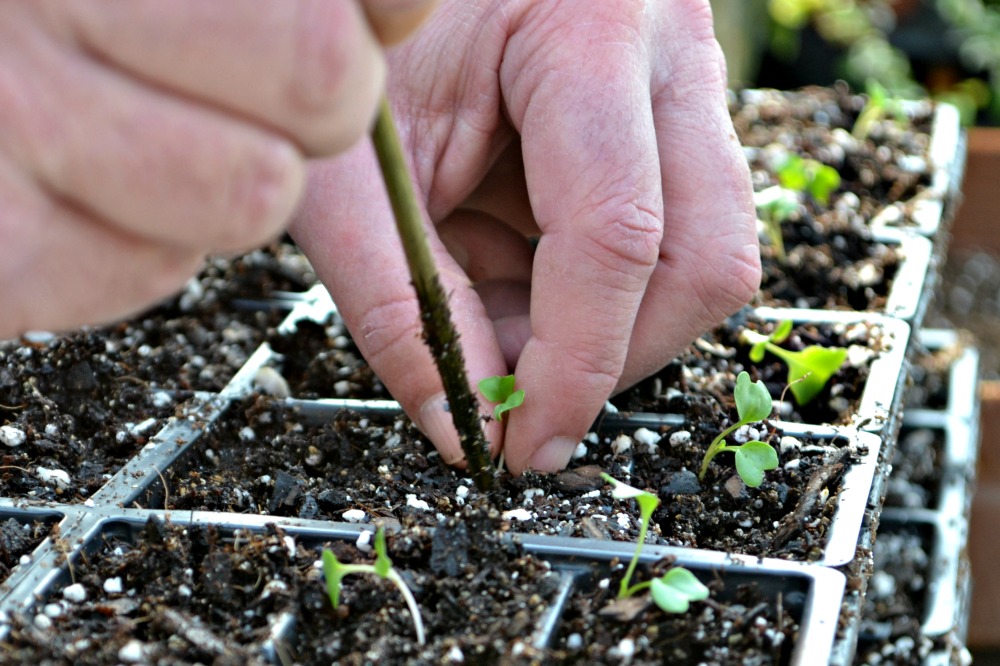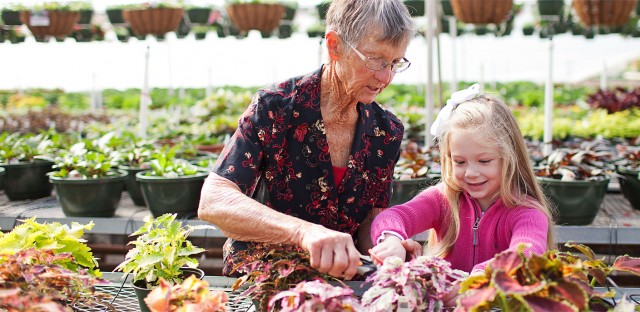Plan Ahead: Veggie Gardens
A Yearlong Vegetable Garden can Warm Your Soul and Feed Your Body
Vegetable gardening can stir the imagination and adventure in each of us. It can soothe the soul, give pride and relieve the stresses encountered in everyday life. There is a certain feeling of accomplishment and pride when a tiny seed is planted and ends up being a tasty meal on your kitchen table that was completely grown by your own hands. Along with all of this, you will be rewarded with fresh vegetables just outside your back door. Money is saved at the grocery store and a healthy lifestyle is created for your family. Another benefit will be “gifts” always on hand for friends and neighbors.

The vegetables you grow will depend on your interests and space. A garden can be anything from a container on your deck or patio to raised beds or a plot of land determined by the terrain of your yard. My best advice to you is to follow your instincts on what you think you can handle. Don’t be afraid to try new vegetables, be challenged and experiment. Gardening only gets better with experience. If you do not succeed with certain plants pull them up and begin anew with a different variety. Seeds and plants are cheap compared to the reward of the fruit of your labor.

Also, keep in mind that each year of gardening can be very different. One year your tomatoes may be a smashing hit and the following year it will be your squash or cucumbers. As I’m sure you know, the last frost date in our area is April 15 but this does not mean you cannot have vegetables throughout the year. Hearty winter vegetables can be harvested to warm your soul from late fall and throughout the winter. Seedlings of broccoli, cabbage, collards, lettuce and turnips planted in September can yield bounty through Christmas and into the new year. Carrot seed planted in late August can produce the sweetest and most crisp carrots you’ve ever tasted throughout the cold winter months.
Plan Ahead
Spend January and February planning your strategy and preparing your dirt because planting is in full swing by the end of February. At this point, potato, onion and broccoli sets can be put out. Lettuce, garden peas, sugar snaps and radish seeds can be planted because they are cool season vegetables; they grow well in the cool weather of spring and fall but become bitter and produce seed in the heat of summer.

When the last frost date hits on the 15th of April, you will already have fresh tender salads on your table. At this point, summer vegetables can be planted. Although, by mid-March any overly anxious gardener who simply can’t wait will tempt fate and put in a few seeds of cucumbers, squash, corn and beans in hopes of an extra early harvest to brag about!
By mid May, when your potatoes have set bloom, try slipping your hand under the roots to discover golf ball-sized tubers. These, boiled with a dash of salt and a bit of butter will melt in your mouth. The warm days of June bring bountiful harvests of beans, beets, corn, cucumbers and squash.

Fresh basil, parsley or chives can only enhance your new squash when tenderly sauteed with green onions and a fresh lettuce salad on the side. The end of June (for early varieties) and July brings mouth watering tomatoes and the long awaited tomato sandwich.
Harvest All Summer Long!
By staggering your seed planting, cucumbers, beans, corn and squash can be harvested all summer. After your first planting, wait two weeks and plant again. When your first crop is spent, pull it up and replant. This will ensure freshly picked vegetables all summer long.

Be sure to keep your soil properly prepared and weed-free. Vegetables need more from the soil than other plants to produce full flavor, vitamins and nutrients. Soil conditioners, fertilizers and organic pesticides can be purchased to keep your crops healthy. Learn to create your own mulch using peelings and spent plants from your garden. Also, keep a vigilant eye out for pests.

Growing your own vegetables allows you to be an active part of what you feed your family. It stimulates exercise and good health. It can be great therapy for older adults as well as young children, teaching skills to help us stay in shape mentally, physically spiritually and emotionally.
Happy Planning & Planting!




